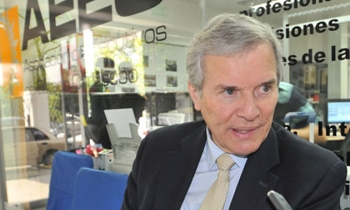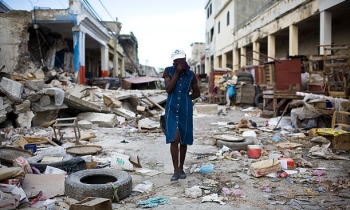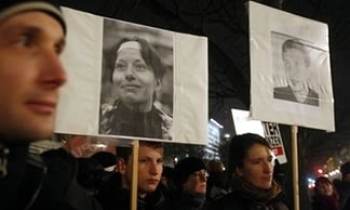A Dutch journalist has asked an Amsterdam court to convict him for eating chocolate, saying by doing so he was benefiting from child slavery on cocoa farms in Ivory Coast, Reuters reported Friday. Teun van de Keuken, 35, is seeking a jail sentence to raise consumer awareness and force the cocoa and chocolate industry to take tougher measures to stamp out child labour.

"If I am found guilty of this crime, any chocolate consumer can be prosecuted after that. I hope that people would stop buying chocolate and thus hurt the sales of big corporations and make them do something about the problem," van de Keuken said.
Ivory Coast, the world's No. 1 cocoa producer which has been racked by instability since a brief 2002 civil war, is the target of allegations by international rights groups that children are working as slaves on its cocoa plantations.
Meanwhile, in Canada, Save the Children Canada alleged that despite commitments made by Canadian chocolate companies and the Canadian government to clean the cocoa supply chain from the worst forms of child labor, hundreds of thousands of children are still being exploited in the West African cocoa farms.
It is estimated that over 312,000 children are currently working in the worst form of child labour in these cocoa farms. "Since Canada imports cocoa beans from Côte d'Ivoire (Ivory Coast), we believe all Canadians have an obligation to respect, protect and fulfill these children's rights," said David Morley, President and CEO of Save the Children Canada, who recently returned from visiting cocoa farms in West Africa.
The multi-billion dollar chocolate industry is dependent on West African cocoa which produces roughly 70 per cent of the world demand. Cocoa prices have dropped to 1/4 of their value over the last 10 years making farming families extremely poor. To maintain their margins, farmers look for the cheapest source of labour and increasingly they find it in the worst forms of child labour.
Van de Keuken launched his attempt to be charged for eating chocolate two years ago when the Dutch public prosecutor ruled that it was not a case for the courts and that the journalist was not directly involved with the cocoa business. On Friday, he appealed against the prosecutor's decision before a court which is expected to rule in April.
The Netherlands is the biggest importer and processor of cocoa beans in the European Union, which accounts for 40 per cent of global cocoa processing.
The journalist travelled to Burkina Faso to track down former child slaves who he said were sold by their impoverished parents or lured by merchants to work on Ivory Coast farms. Van de Keuken said he has now brought one of these former child slaves to testify in court against him.
"We profit from these people and they get almost nothing in return. As consumers we are also responsible for these atrocities," van de Keuken told Reuters. He urged consumers to choose fair trade chocolate but warned it was often difficult to trace the origin of cocoa beans.
"I cannot deny that there are issues with child labour but it is totally wrong to call it slavery," said Robert Zehnder, secretary general of the European Cocoa Association (ECA). "We work with governments and NGOs to address the problem".
David Zimmer from the CAOBISCO industry association said boycotts of chocolate would hurt farmers in west Africa as 10 million people depended on cocoa for their livelihood.
Members of the global chocolate and cocoa industry signed an accord in late 2001 for the introduction of a certification system by July 2005 that would enable customers to choose chocolate produced without abusive labour practices. But, to the frustration of rights groups, deadlines have been slipping.
"For five years, we have waited for governments and the global chocolate industry to change child labor practices on the ground in the growing and harvesting of cocoa. We are now calling on Canadians to sign a petition on our website to tell the government as Canadian consumers of chocolate that we want to do our part in cleaning up cocoa supply chains. In addition, we need a tracking system to clearly identify where our cocoa beans are coming from and the conditions under which they are grown," said Anita Sheth, Senior Policy Analyst for Save the Children Canada.









